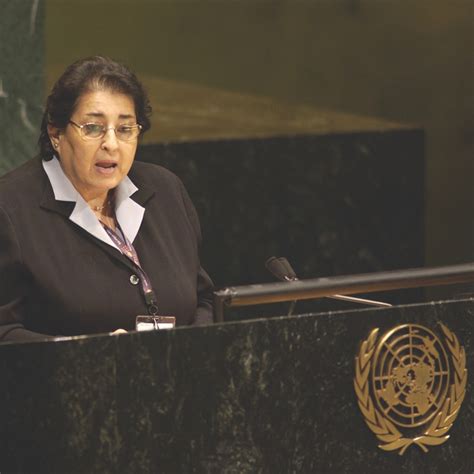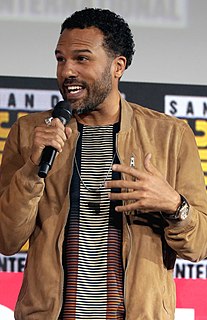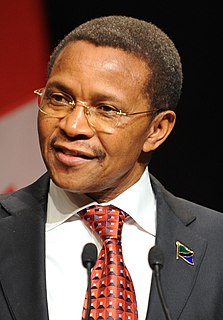A Quote by Thoraya Obaid
We are reviewing our experience to enable us to respond to the cultural challenge: to help countries, communities and individuals interpret universal principles, translate them into culturally sensitive terms and design programmes based on them, programmes that people can really feel are their own.
Related Quotes
The challenge for UNFPA is to help countries as we always have with no agenda of our own; with sensitivity towards unique cultural values; with an infinite willingness to work with whatever is positive; and with a determination to help countries and people turn universal principles into concrete action.
The relatively unpredictable flow of funds to humanitarian organizations, and the bureaucratic strings often attached to them, can have a highly negative impact on an organization's ability to plan and execute programmes effectively. We need to be able to rely on predictable income flows to plan sustainable programmes.
Overly simplistic suggestions that we ban people from entering this country, based on religion, or ban people from an entire region of the world is counterproductive. It will not work. We need to build bridges to communities, to American-Muslim communities right now, to encourage them to help us in our homeland security efforts.
I think when YouTube first came out, everyone was thinking people were just going to watch five-minute shows from now on and that people didn't have the patience anymore to watch longer programmes. But instead, everyone is binge watching and consuming ten-hour programmes and box sets of shows, so it is really interesting.
When we look at the full-on mass surveillance watching everyone in the country, in the United States, it doesn't work. It didn't stop the attacks in Boston. The marathon bombings. Where again, we knew who these individuals were. It didn't stop the Underwear Bomber, whose father walked into an embassy and warned us about this individual before he walked onto an airplane. And it's not going to stop the next attacks either. Because again, they're not public safety programmes. They're spying programmes. They are valuable for spying.
There are some communities that feel you shouldn't give them the publicity, because it's just going to make people curious. There are communities who feel we need to fight them tooth and nail. What we have seen, though, is that ignoring them does not make them go away. If we sit back and let them have free reign, we lose members of our community.
We design our own programmes; we take leadership. Of course the donors come in to support us, to complement our efforts. Our responsibility to the donors is about accountability: about how we use that money. If somebody gives you his money, definitely he will be interested in knowing how you spend the money.
If there's a group like Amish people, that want to live their own lifestyle – they don't want to live in our city – they want to live out in the country, with their own projects. We’ll put up the buildings for them, design the buildings for them, design the food production systems for them – if they want us to. But we don’t control them.






























